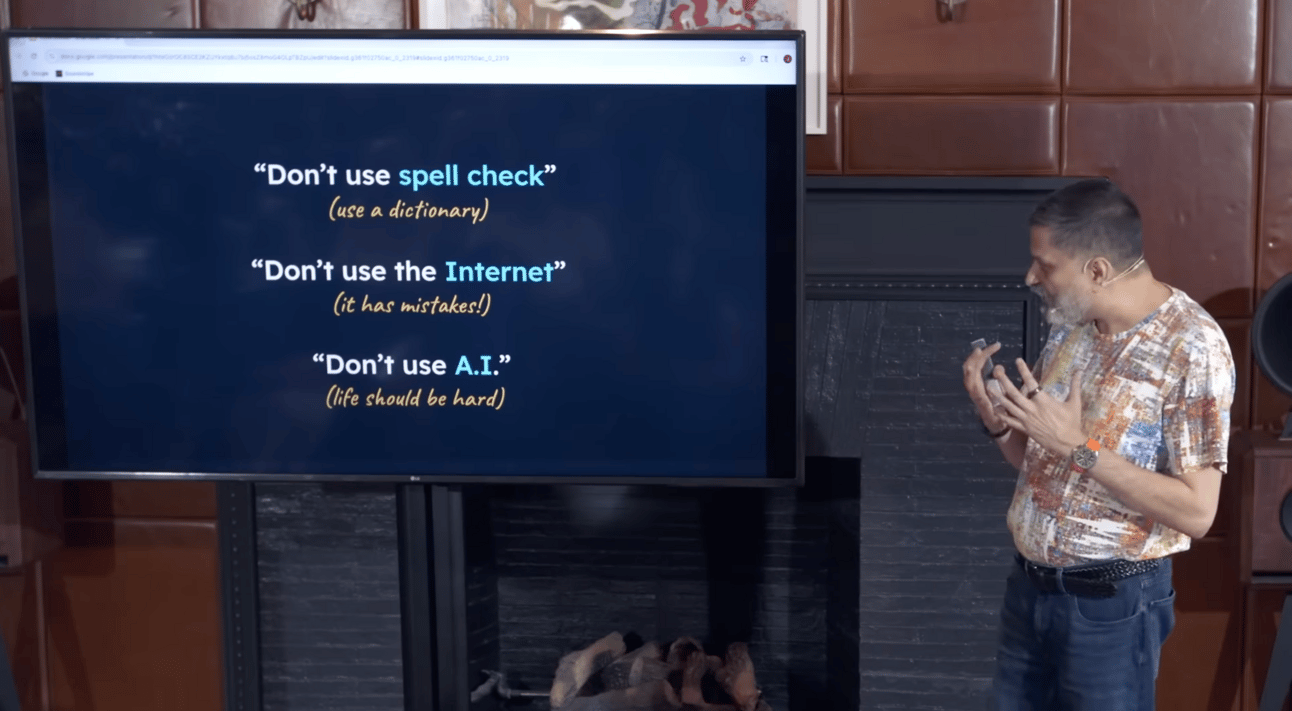- simple.ai by @dharmesh
- Posts
- You^AI: How to Compete with AI (And Win)
You^AI: How to Compete with AI (And Win)
5 core ideas from my TEDx talk
Last month, I got an email that made me simultaneously excited and terrified: an invitation to speak at TEDx Boston.
Exciting because, well, it's TEDx! I've watched hundreds of these talks and always thought "maybe someday..."
Terrifying because I had exactly 12 days to prepare. And by "12 days," I mean 12 nights, since my days were already packed with other commitments.
But I’m happy with how the talk turned out. I managed to hit an LPM (Laughs per Minute) of 1.7 (my goal was 1.5 — yes, I have a goal for LPM for big presentations).
Here’s the talk, if you want to watch it.
In this post, I’m summarizing the 5 core ideas from the talk that matter most for navigating the AI-powered world:
Why understanding LLMs as "smart autocomplete" will make you more effective
The three critical limitations every AI user needs to know
Why banning AI is like banning spell check (and what to do instead)
The secret to successful AI adoption in any organization
How to shift from "competing against AI" to "competing with AI"

1. LLMs Are Really Smart Autocomplete (And That's Actually Amazing)
First, let’s demystify how LLMs actually work at a high level--because understanding this will reduce your anxiety and help you use it more effectively.
I know many of you who read simple.ai may be far beyond this, but it sets the stage for the other ideas.
When you type "The horse jumped over the ___" into an AI model, it's doing something surprisingly simple: predicting the next word based on probability. It might say there's a 45% chance the word is "fence," 20% chance it's "hurdle," and so on…
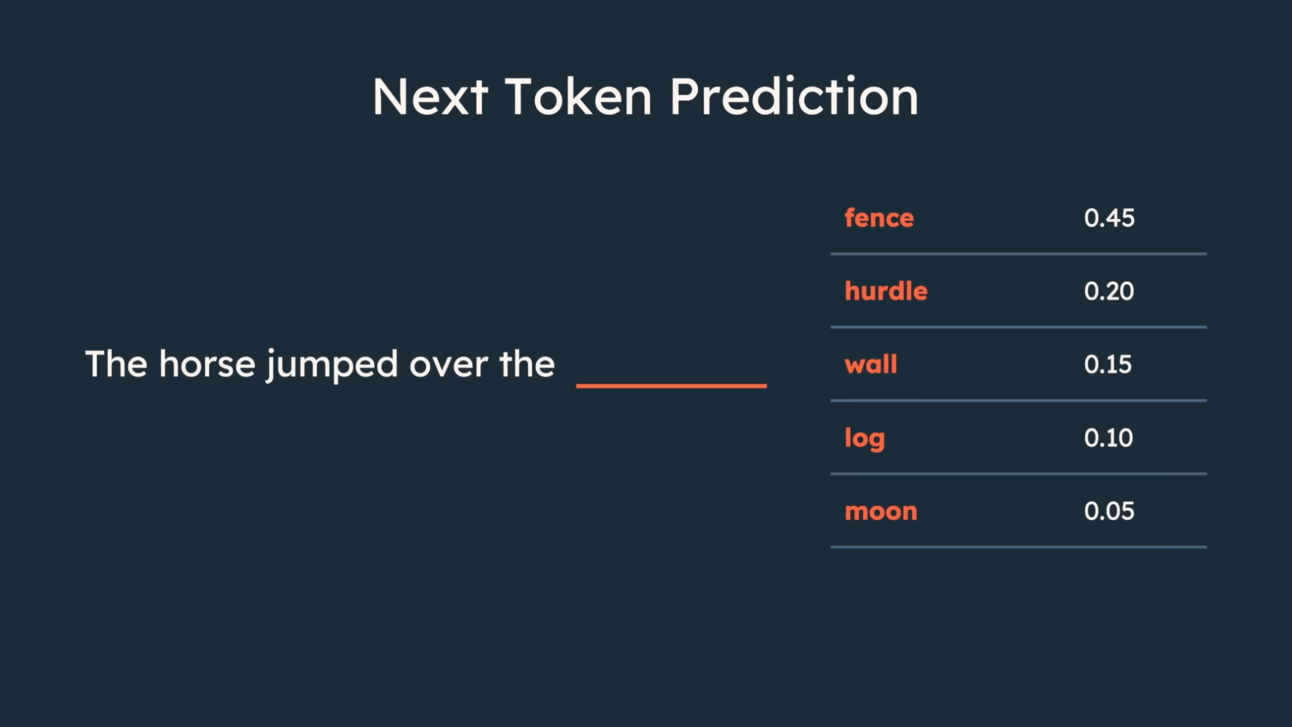
But to predict that next word accurately, the AI had to absorb essentially all of human knowledge during training. It studied every Wikipedia article, every published book, every website it could find. To know that horses jump over fences, it had to learn about animals, physics, language, context, and thousands of other subjects.
It's autocomplete with a PhD in everything.
That's why AI feels so much more magical than simple word prediction--because to predict words accurately, it had to understand the world. And once you grasp this, you'll know exactly how to work with it and what to expect from it.

2. Know AI's Three Key Limitations
Now that you understand how AI works, you should know its three critical constraints--because these will save you from frustration and help you use it more strategically.
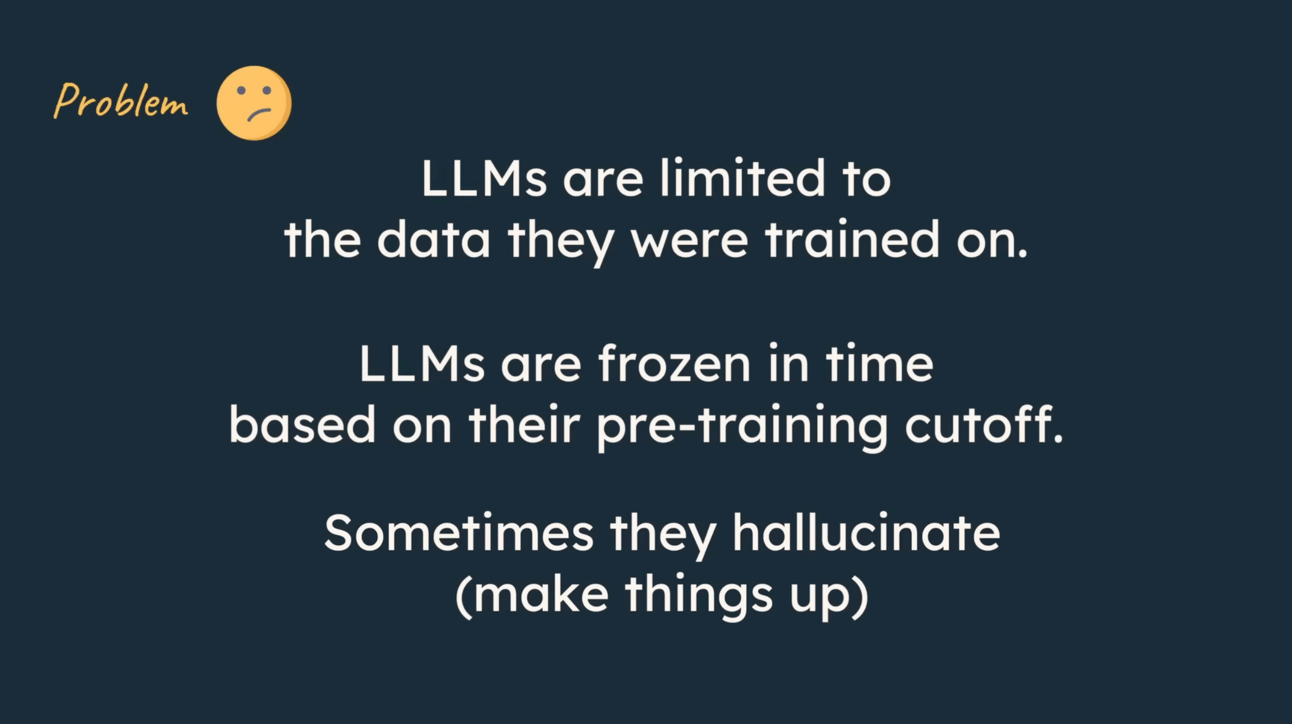
First: It's limited to training data. Think of AI like hiring an intern with a PhD in everything who shows up on their first day knowing absolutely nothing about your specific business. They're incredibly well-read and can discuss philosophy, history, and quantum physics, but they don't know how your internal systems work, who your customers are, or where the coffee machine is located.
Second: The data is frozen in time. Even if that brilliant intern had read your company website during their studies, they read it six months ago. They have no idea about the product launch you announced last week, the new hire you just made, or the policy changes from last month.
Third: LLMs sometimes hallucinate. And by "hallucinates," I mean it confidently makes things up. It's not trying to deceive you--it's like that friend we all have who's so confident in their wrong answers that they don't realize they're wrong. They'll tell you with complete certainty that the capital of Australia is Sydney (it's actually Canberra).
When you know where AI struggles, you can work around those constraints and focus on where it truly excels.

3. Don't Ban AI--Be Curious But Careful
There's always resistance to new technology, and the arguments follow a predictable pattern.
First, people said: "Don't use spell check, use a dictionary and you'll learn to spell better."
Then: "Don't use the internet, it has mistakes and unreliable information."
Now: "Don't use AI” (because life is supposed to be hard?)
I grew up in a tiny town in Gujarat, India, where we had no phone, no TV, no refrigerator. Our milk was delivered daily, straight from the cow. Life was hard.
Today, my 14-year-old son Sohan learned to swipe before he learned to wipe. He's been using AI since before ChatGPT existed, and he uses it in ways that blow my mind. He creates detailed fantasy worlds with 2,000-word prompts describing entire universes, then tests them like role-playing games to see if the AI can track characters and maintain consistency.
He's essentially programming in what will become the world's most popular programming language: English.
Sohan is part of Generation AI--kids who will grow up thinking you're from the stone age if you say you don't use AI.
My advice: Be careful, but stay curious. The risk isn't in using AI, it's in being left behind while everyone else learns to work with it.

4. Dream Big, Iterate Small
Getting AI adoption in any organization isn't a walk in the park, it's a hike up a hill. There will be resistance, skepticism, and people who insist on doing things "the way we've always done them."
Here's what I've learned works: Dream big, but iterate small.
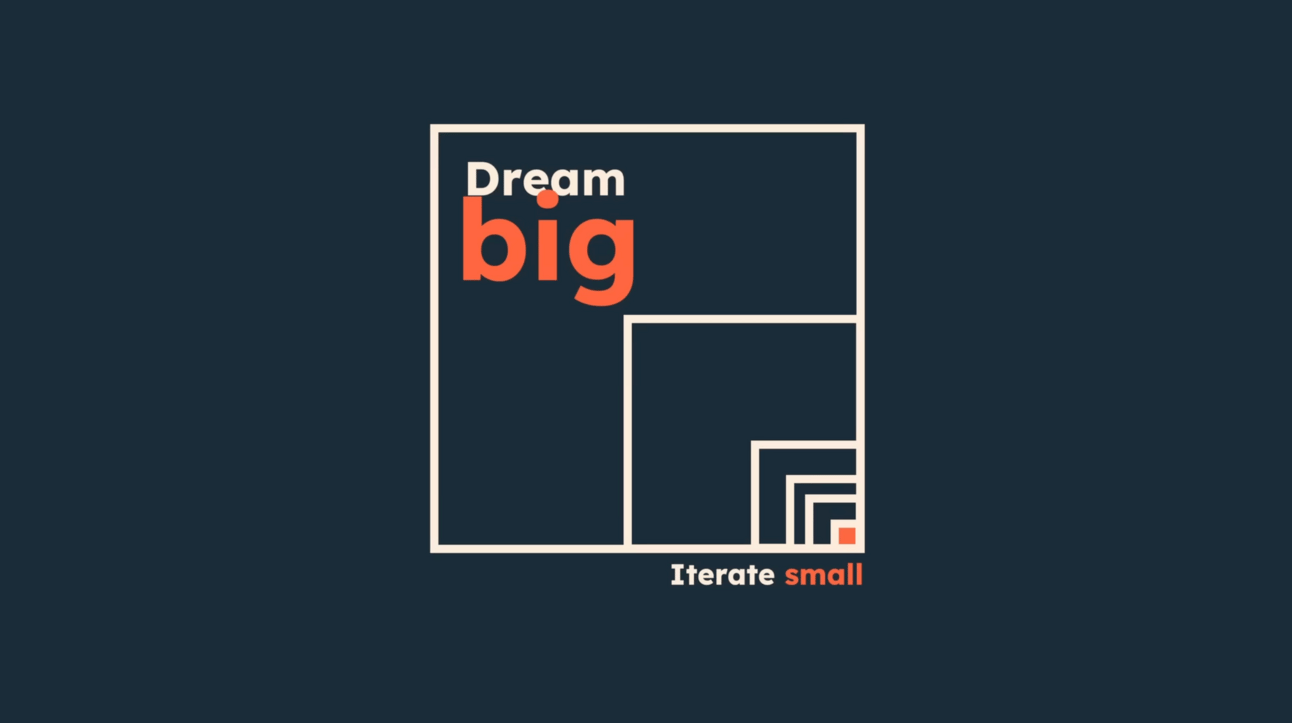
Start with ambitious visions of what AI could do for your team or company, but don't try to build that vision all at once.
Instead, pick the smallest possible experiment that moves you toward that big dream. Maybe it's using AI summarize meeting notes for just your team. Or automating a single repetitive task that takes 15 minutes every week.
Make that small thing work really well. Let people see the value. Let them get comfortable with it. Then expand to the next small thing.
At HubSpot (my day job), with 8,000+ employees, we don't just encourage AI use, we expect it. We invest in education, and when we're hiring, AI curiosity is a signal we actively look for.

5. It's Not You vs. AI—It's You^AI
The most quoted thing about AI is: "AI won't take your job. Someone using AI will."
I think about it a bit differently.
AI will take your job… and give you one that's much better. One with less rote work, fewer mind-numbing repetitive tasks, and more help from digital assistants so you can focus on what matters most to you.
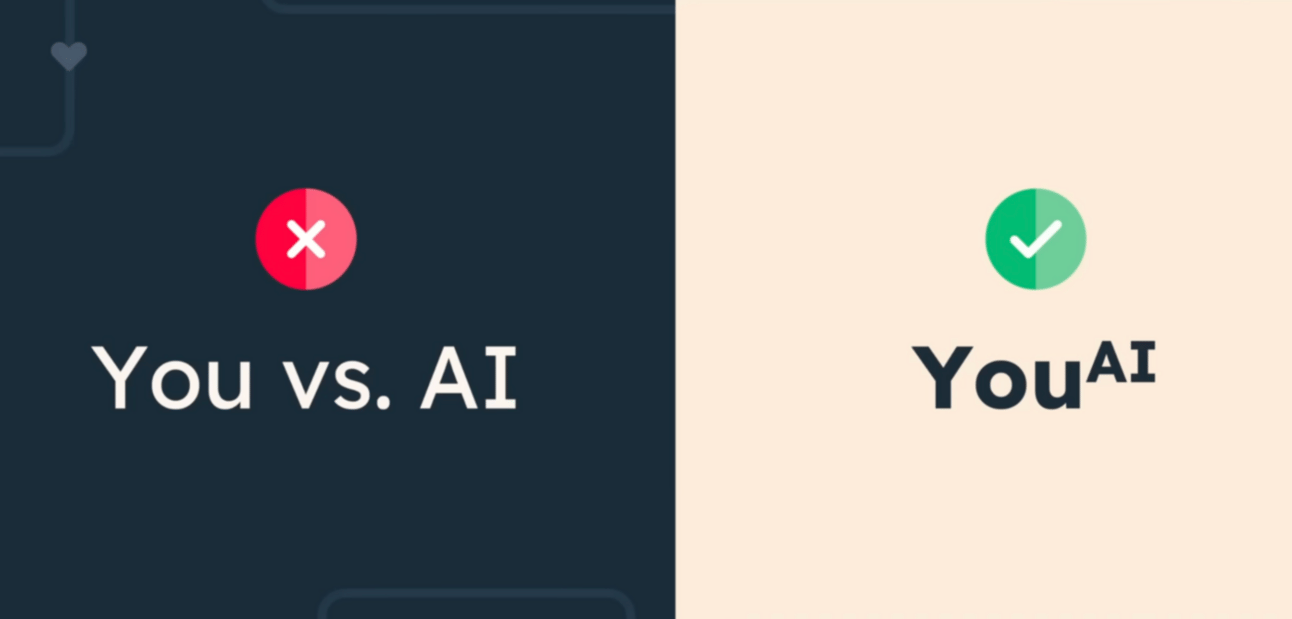
Think about it: Are you less valuable as a human because you use spell check instead of a dictionary? Because you use Google instead of memorizing encyclopedias? Because you use a calculator instead of doing long division by hand?
Of course not. You're more valuable because these tools amplify your capabilities.
We are more than the sum of the tasks we perform. When AI handles the busywork, we get to spend more time on creativity, strategy, relationship-building, and solving complex problems that require human judgment.
So, I think AI isn't an existential threat, but an exponential opportunity.
It's not you versus AI. It's you to the power of AI.
And here's the beautiful irony: The better our artificial tools get, the more human it allows us to be. We spend more time on the things that make us uniquely human--because being human isn't a bug, it's our ultimate feature.

Start Today
My closing advice: Anytime you sit down to do something, ask yourself "How might I use AI to help me with this?"
Put aside the skepticism. Type something into ChatGPT or your favorite AI tool and see what happens. Start learning by doing, and you'll be surprised how often it works.
The future belongs to those who learn to work with AI, not against it.
You can watch the full TEDx talk here: How to Compete with AI -- and Win
—Dharmesh (@dharmesh)

P.S. I’d love to hear your feedback, either on the YouTube page or the poll below. I read every response, and honestly, your feedback makes my day just a bit better! :)

What'd you think of today's email?Click below to let me know. |

